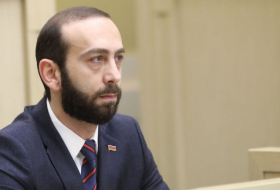Many people make New Year’s resolutions. The most common ones, at least in the United States, are to exercise more, eat healthier, save money, lose weight, or reduce stress. Some may resolve to be better to a particular person – not to criticize their partner, to visit their aging grandmother more often, or to be a better friend to someone close to them. Yet few people – just 12%, according to one US study – resolve to become a better person in general, meaning better in a moral sense.
In addition to ushering in a massive economic and public-health crisis, COVID-19 has fully upended longstanding assumptions about effective governance. There are important lessons to be learned from the fact that some of the world's richest countries have fallen on their faces while some of the poorest have shined.
One possible explanation is that most people focus on their own well-being, and don’t see being morally better as something that is in their own interest. A more charitable explanation is that many people see morality as a matter of conforming to a set of rules establishing the things we should not do.
That is not very surprising in societies built on the Jewish and Christian traditions, in which the Ten Commandments are held up as the core of morality. But, today, traditional moral rules have only limited relevance to ordinary life. Few of us are ever in situations in which killing someone even crosses our mind. Most of us don’t need to steal, and to do so is not a great temptation – most people will even return a lost wallet with money in it.
For those who take this view of morality, and can make an honest living sufficient to meet their own essential needs, being a good person hardly seems worthy of a special resolution. This is suggested in a survey of US adults that found that only 23% report that they often think about or research the ethical aspect of a choice in their life.
Most people can just live as they have always been living, and as their friends and co-workers live. In the same survey, another 31% reported that they sometimes think about ethical aspects of choices in their lives, suggesting that moral choices arise only in unusual circumstances, and many people thus simply cross those bridges when they come to them. What of the remaining 46%? It seems that they never think about ethics at all!
These findings could be interpreted as indicating that nearly half of Americans don’t regard ethics as important. But in the same survey, 87% said that it is important to teach ethics to children, from kindergarten through high school. The correct interpretation, therefore, seems to be that at least three-quarters of Americans think that ethics is important, but they don’t believe that it requires much thought or research.
We reject this view. Being a good person today requires thought and work. The moral intuitions that evolved during many millennia of living in small, face-to-face societies are no longer adequate. Our actions now – or our failure to act – affect people all over the world and people who will live on this planet for many centuries to come.
That means we face moral choices all the time. Global problems like climate change, extreme poverty, the cruel confinement of billions of animals in factory farms, overfishing of the oceans, and of course the pandemic raise complex questions about how we should spend our money, how much of it we should give to help others, what we should eat, and how we should use our abilities to influence others and our governments. Moral codes written thousands of years ago are silent about climate change, and usually say nothing, or very little, about protecting the environment, the treatment of animals, and how we should exercise our responsibilities as citizens in a democracy.
No short set of rules can possibly deal with the variety of circumstances in which individuals find themselves today. To be a good person today requires time and thought. We need to inform ourselves about problems like those just mentioned, decide on our priorities, and consider where we can make the most difference. That’s why this is an appropriate area for the kind of commitment involved in making a resolution.
We must consciously direct our attention to living ethically. It’s a mistake to think that we can wait until life puts us in a situation requiring us to make a difficult moral choice. Anyone sufficiently affluent to have choices about how to live, and what to do with their time and money, is already there.
For these reasons, a resolution to be a morally better person would not be a matter of sticking to rules, like not smoking or eating sweets. Such resolutions are rarely kept anyway.
Setting goals works better, especially if the goals are incremental, steps along a path. So make a moral plan. Think about your values, and choose one or two issues that are important to you. Then you can affirm those values by living in a way that addresses the issues you care about, whether it is by reducing your personal contribution to climate change, or animals’ suffering, or finding the most effective organizations helping people in extreme poverty, and supporting them with your time or money.
When you do this, make a note of what you have done, and the progress you have made. You will not be perfect. There are few saints, and for most people, aspiring to sainthood is bound to be self-defeating. But take pride in your achievements, and aim to build on them in the months and years to come.
Peter Singer is Professor of Bioethics at Princeton University and founder of the non-profit organization The Life You Can Save. His books include Animal Liberation, Practical Ethics, The Ethics of What We Eat (with Jim Mason), Rethinking Life and Death, The Point of View of the Universe, co-authored with Katarzyna de Lazari-Radek, The Most Good You Can Do, Famine, Affluence, and Morality, One World Now, Ethics in the Real World, Why Vegan?, and Utilitarianism: A Very Short Introduction, also with Katarzyna de Lazari-Radek. In 2013, he was named the world's third "most influential contemporary thinker" by the Gottlieb Duttweiler Institute.
Agata Sagan is an independent researcher living in Warsaw, working on ethics and the persecution of Jews in the Soviet Union.
Read the original article on project-syndicate.org.
More about: 2021
















































